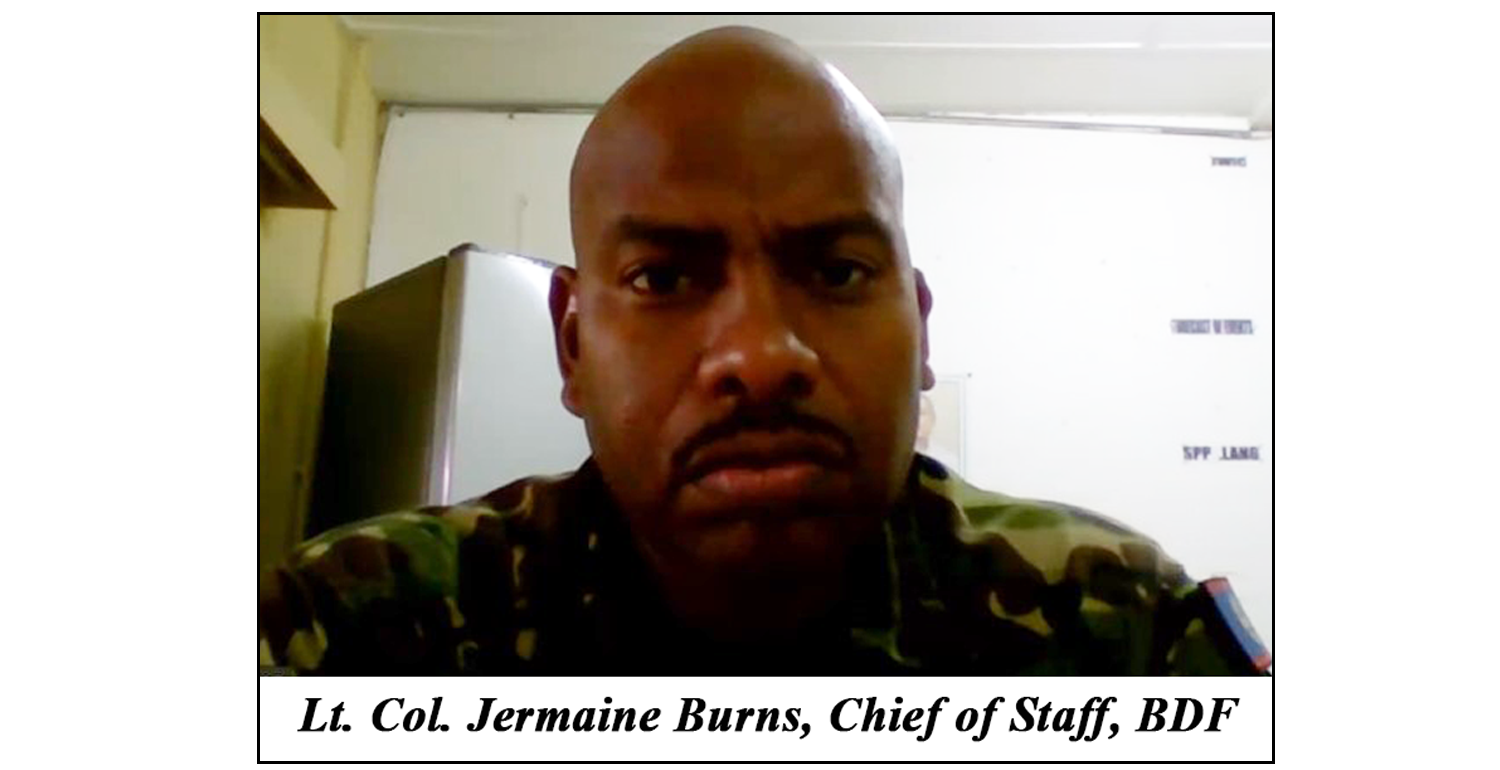by Khaila Gentle
BELIZE CITY, Tues. Sept. 13, 2022
Chief of Staff for the Belize Defense Force (BDF), Lt. Col. Jermaine Burns, says that illegal cattle ranching has been plaguing the Chiquibul area out west for three years now. In an effort to address the ongoing issue, the BDF and the organization Friends for Conservation and Development Belize (FCD Belize) held a meeting this month to discuss more effective strategies for curbing the clearing of Belizean forests by Guatemalans for ranching purposes.
FCD Belize has reported that cattle ranching by Guatemalans inside protected areas such as Vaca, Caracol, Columbia River, and Chiquibul has become an increasing threat.
Before the rise in illegal cattle ranching, the main issues encountered by the BDF along Belize’s Western border with Guatemala were deforestation for marijuana plantations, gold panning, and illegal hunting. Now, according to Lt. Col. Burns, Guatemalan ranchers have been continuously clearing land to raise cattle on this side of the border. He told the media this week that the initial response by the BDF was to take a diplomatic approach and speak with their Guatemalan counterparts through the Ministry of Foreign Affairs. Additionally, soldiers have also attempted to push back the ranchers and remove their constructed fences.
“You would see where…we would be cutting down fence lines that would be apparent on our side of the border. We would be cutting down their poles as soon as they are putting them up to try and make these fences—elaborate sized fences, you would imagine, because it’s a lot of cows that are grazing on that end,” he said.
Those strategies, however, have been mostly futile—as have the many special operations conducted by the BDF and FCD, which usually result in only a temporary decrease of cattle ranching in the area.
“While it reduces the threat for a while, you see where other areas are being cleared for these ranches to come about,” Lt. Col. Burns added.
At present, FCD Belize has park rangers posted at strategic areas along the western border. Both the rangers and BDF soldiers, says Burns, report seeing cows grazing weekly.
“Every time you approach a cow, if you know anything about ranching, these cows would just scatter, and it’s very hard to say you’re going to catch a cow—detain the cow, and bring them in because you have all kinds of health risks that you could bring into the country,” he stated.
At the recent meeting between the BDF and FCD, both parties sought to discern what could be a more effective strategy to enhance their efforts. They have proposed, as one option, establishing a more permanent military presence in problem areas.
“We spoke about how we can go and target these particular areas through special operations and double, or in some cases triple, the numbers of soldiers we put on the ground for a longer period of time, so that we can actually put a dent in the efforts of the illegal ranching,” said Burns.
Rafael Manzanero, Executive Director of the FCD, said this week that the illegal cattle ranching issue is certainly one that demands a multifaceted solution—and one that involves cooperation from both sides of the border.
“In our approach we believe that there has to be a lot of that bi-national componemt, which basically means that our counterparts and the agencies, the Government, in Guatelama would also be required to get involved,” he said.
Here in Belize, Friends for Conservation and Development has been making an effort to work and communicate more closely with both the Government and the Organization of American States (OAS).
The BDF and FCD will be sending their proposal, once it is finalized, to the government and will await approval of their new strategies. It remains to be seen, however, how well these strategies will deter the cattle ranchers, who Lt. Col. Burns says are simply trying to make a living.
“From what we’ve gathered, FCD along with the soldiers that are out in the west spoke to a lot of these caretakers—and I call them caretakers because they are not the ones that actually own these cattle; they are not the ones that are responsible, I would say, for the action. Maybe they are getting it done, but they are the ones just trying to earn a way of life. While they understand that it’s illegal, it’s almost like they’re willing to take the risk, because they have nothing else to do. It’s almost survival. We spoke about this in the meeting as well. The target needs to be the person that owns the ranch,” he said.
According to Friends for Conservation and Development, cattle ranching in the tropics is the main human activity that is destroying a wide expanse of broadleaf forests. The BDF and FCD, as well as the OAS and the Guatemalan armed forces on the other side of the border, have been issuing flyers in an effort to discourage the illegal activity.

